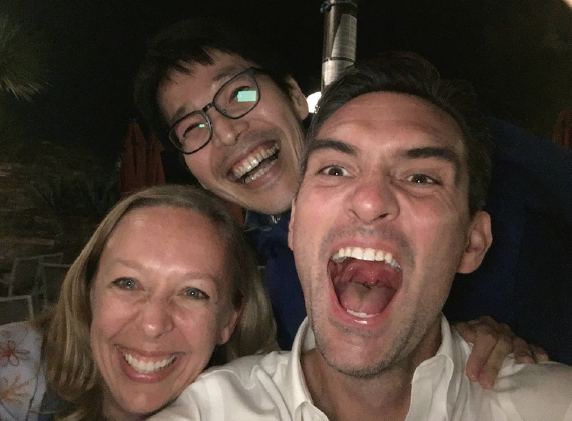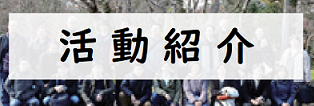刊行物
応募書類の受付は4月26日13時に締め切りました。
書類の受諾状況は、5月中旬頃に応募者登録サイトに表示されます。
"Application forms were closed at 13:00 on 26 April.
The acceptance status of documents will be displayed on the registration website around mid-May."
| ENGLISH |
Jeremy Rappleye・小松 光
One of the original goals of Hakubi was to create spaces of inter-disciplinary, and inter-national dialogue. Most of my 3.5 years on Hakubi was spent in dialogue with Komatsu Hikaru, another Hakubi member. In those years we drank tea and read philosophy in my office each Friday. Now, 10 years later, we have published a large number of papers that overlap education (my field), environment (Komatsu’s field), and Kyoto School philosophy (one of KU’s most creative projects ever). When I look back on the past decade, I feel that my dialogue, friendship, and knowledge-creation with Hikaru was precisely what the designers of Hakubi had hoped for. I feel very lucky to have been selected, and even more lucky to have met Hikaru during my Hakubi time.
Recently, Hikaru and I published our first major work in Japanese: paperback ( 新書) under the title of 日本の教育はダメじゃない (ちくま新書, February 2021). We wanted to publish a paperback to make our own Friday afternoon dialogues accessible to the general public, not just to researchers. Another hope for the original Hakubi project was, of course, to do 'paradigm-shifting’work. And it is clearly not possible to change paradigms without widespread understanding, recognition, and support from nonacademics. Since publishing our paperback, we have been busy with various talks to students, scholars, and policymakers. Just last week we spoke to the Central Council for Education in the Ministry of Education, Culture, Sports, Science and Technology in Japan (文部科学省 中央教育審議会), appealing for a Hakubi-style paradigm shift in education policy: a deep rethinking of self, as we face unprecedented challenges in the 21st century (e.g., sustainability/survivability).
Hikaru recently took a tenured academic post at National Taiwan University. I was sad to see him go, and couldn’t help but think Kyoto University 'lost’him. But, as he constantly reminds me, the point is not to stay cloistered within Kyoto University, but to share the 'paradigm shifting’ work developed at KU with the wider world. I continue to learn from him, and perhaps this is precisely 'everyday life’after Hakubi: expanding the dialogue, developing innovative ways to paradigm shift, and - more than anything else - continual learning.

Hikaru, Jeremy, and Iveta Silova, who is Director for Advanced Studies in Global Education at Arizona State University (now our closest dialogue New Book Published in February 2021 partner in the USA)
(ラプリー ジェルミー/こまつ ひかる)










